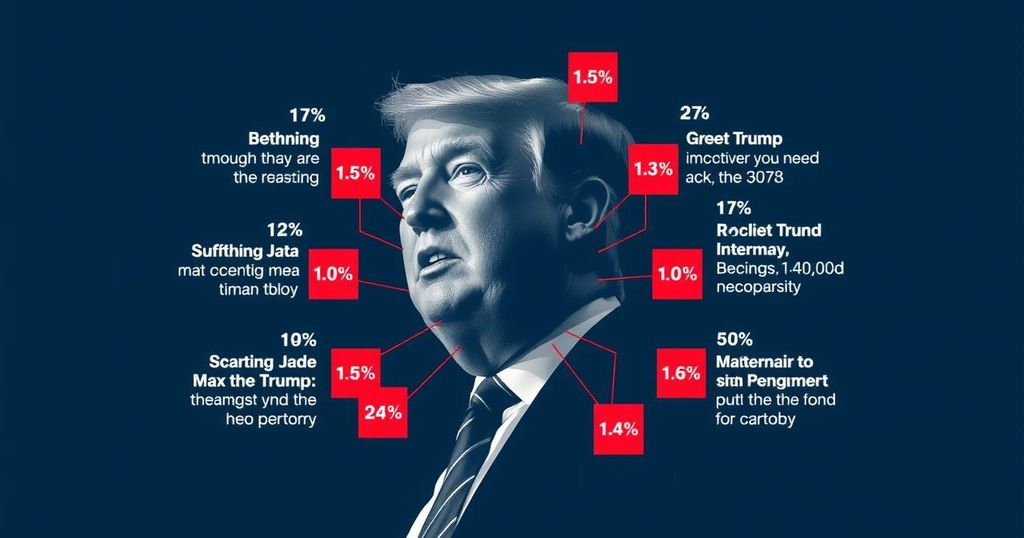Understanding Donald Trump’s 2024 Victory Through Global Anti-Incumbent Trends

President-elect Donald Trump’s victory in the 2024 election was propelled by a nationwide anti-incumbent trend, with voters across demographics rejecting Vice President Kamala Harris. This shift mirrors global sentiments, where dissatisfaction with current leadership has prompted electoral changes in many nations. Economic factors, particularly inflation, have contributed significantly to this desire for change among voters, reflecting a broader yearning for new leadership.
In the 2024 election, President-elect Donald Trump’s victory reflected a profound nationwide trend of voters increasingly rejecting the Democratic ticket led by Vice President Kamala Harris. Harris, in contrast to President Joe Biden’s performance in 2020, faced significant losses across diverse demographics—including urban and rural populations as well as in both traditionally blue and red states. This trend cannot be adequately attributed to standard electoral factors such as campaign strategy or demographic targeting, as Harris faced a sweeping and consistent rebuff nationwide. To truly grasp the implications of the 2024 election results, one must consider global political trends, particularly the rise of anti-incumbent sentiment. The year marked an unprecedented surge in global voting, with a remarkable number of elections occurring and leaders worldwide facing significant electoral challenges. Notably, the democratic shifts observed in countries such as the United Kingdom, India, and South Korea illustrate a broader pattern where voters expressed dissatisfaction with their governments—an occurrence that also played out in the United States. Polling data indicated that approximately 70 percent of Americans were dissatisfied with the nation’s direction at the time of the election. This widespread discontent contributed to Trump being perceived as the change candidate, despite his previous presidency. His election reiterates the notion that the U.S. is not isolated; it is part of a universal response to ineffective governance. Many analyses of Harris’s electoral defeat have fixated on campaign missteps, messaging failures, and demographic targeting. However, these explanations fail to account for the uniform decline across various voter segments. The prevailing sentiment appears to be less about specific issues or strategies and more aligned with a global tide of anti-establishment sentiment. Political scientist John Sides remarked, “The central plot lines of the [2024 election] are already clear, and not that dissimilar from four years ago. In 2020, an unpopular incumbent lost reelection. In 2024, an unpopular incumbent’s party lost reelection.” This perspective underscores the fact that the dissatisfaction transcends ideology; rather, it reflects a collective yearning for change. The factors prompting this widespread discontent remain a matter of some speculation, with inflation emerging as a credible explanation. Many nations have grappled with rising prices stemming from post-pandemic challenges, leading to substantial public frustration, despite the overall economic conditions showing signs of improvement. In conclusion, the 2024 election results in the United States should be viewed through the lens of a global trend of anti-incumbency. While specific reasons for voter discontent may differ among regions, the overarching narrative reflects a significant demand for leadership change rather than mere ideological preference. This development raises critical questions about the current state of governance worldwide and the potential for future electoral upheavals.
The context of the 2024 presidential election reveals a significant shift in American voter sentiment, marked by an overwhelming rejection of the incumbent Democratic administration. This pattern aligns with a broader global trend of anti-incumbent sentiment, where voters across different nations have increasingly opted for change. Understanding these dynamics requires examining both U.S. electoral behaviors and international responses to dissatisfaction with governmental performance amid economic challenges, such as inflation.
The results of the 2024 election highlight a striking trend of anti-incumbent sentiment not only in the United States but also globally. This pattern suggests a widespread desire for political change driven by dissatisfaction with current governance, rather than purely ideological divisions. As the world grapples with similar sentiments, it raises important questions about the future viability of established political parties and the nature of democracy itself.
Original Source: www.vox.com







